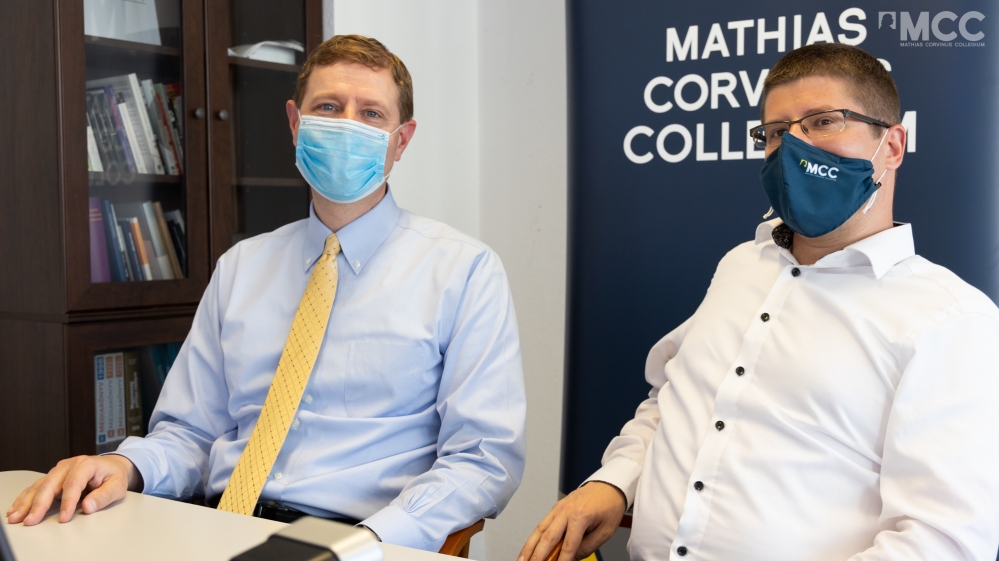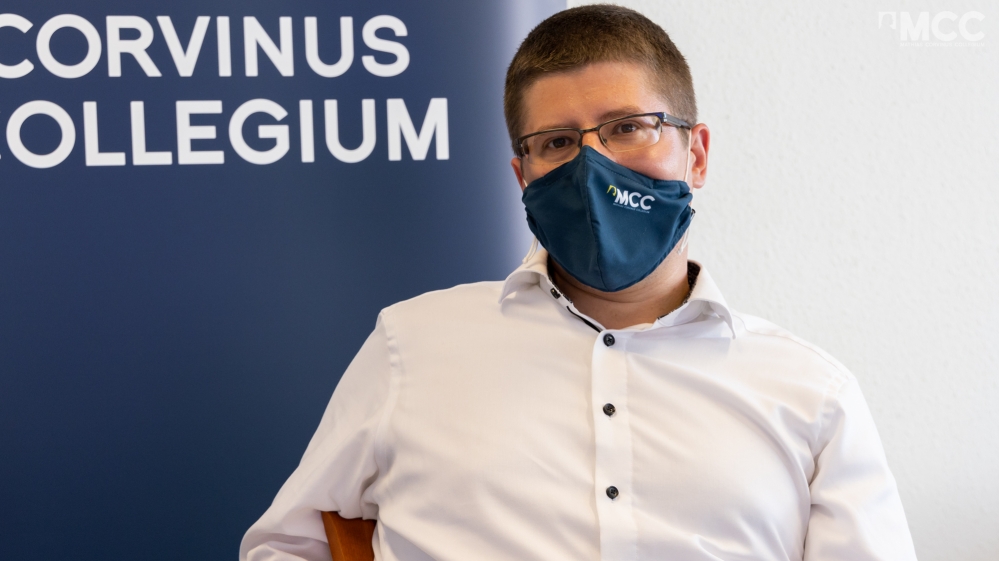Reading time: 2 minutes
The MCC Public Law Center headed by Márton Sulyok hosted one of the seminal figures of the originalist school of American constitutional interpretation, from the University of Toledo, Ohio, Professor Lee J. Strang on 11 May 2021 for a two-hour talk.
Professor Strang is currently a scholar of the MCC Visiting Fellowship Program. During the event, the two experts exchanged ideas and presented the debates regarding the notion and content of constitutional identity on the one hand, while also shedding light on certain aspects also through the glasses of American constitutional law and constitutional theory, that could fall under the umbrella of constitutional identity in terms of the different actors of state administration or in relation to fundamental rights. There is a thought in the American literature of constitutional identity that presents it as a mixture of those legal commitments and institutions and the relevant political rivalry that represents the past of the nation and appears “within the four corners of the constitution”. In this respect, the talk touched upon the American perception on the relationship of the federal and state jurisdictions in reference to some of the relevant European theoretical, legal, political and public debates that exist at present between the EU level and the Member States level. The talk addressed what constitutional moments represent in American constitutional thought, and to what extent can the Supreme Court of the United States, in charge of constitutional justice, can be considered an actor of so-called constitutional politics, and how current political debates about changing the structure of the Court might influence this role. In relation to concrete cases, a few possible aspects of American constitutional identity have been mentioned, like freedom to bear arms and freedom of religion. In this regard, based on questions from students, Professor Strang elaborated on whether there is a difference between freedom and liberty, two concepts that are often used interchangeably in American constitutional language.



